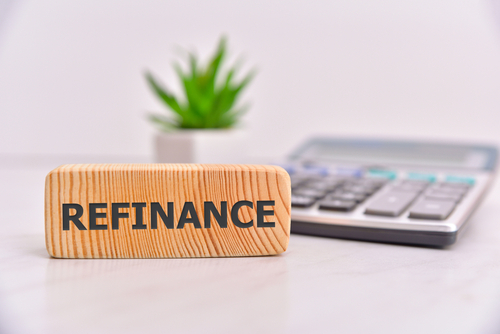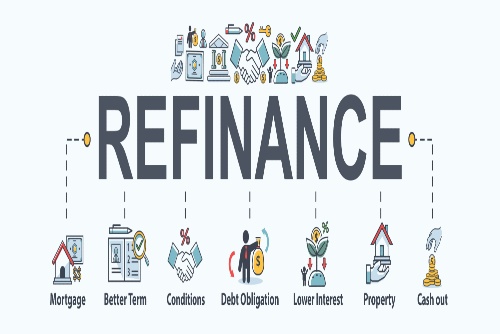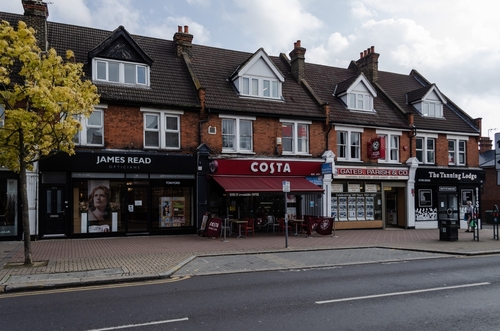Commercial Loan Solutions from Sleek Direct

At Sleek Direct, we specialize in providing Commercial Loans tailored to the unique needs of businesses and property investors. Whether you're acquiring a property for commercial use, refinancing your current mortgage, or seeking flexible funding options for semi-commercial properties, we have the expertise to support your financial goals.
Our diverse range of Commercial Loan solutions includes:
Commercial Purchase Loans
Commercial Remortgages
Semi-Commercial Mortgages
Commercial Bridging Loans
Second Charge Commercial Loans
Explore how our services can help you maximize your business potential while navigating the complexities of commercial property financing.
Commercial Purchase

Larger deposits compared to residential properties.
Higher liabilities, but also greater profit potential.
The need for detailed planning to meet business and financial goals.
At Sleek Direct, we help both first-time investors and experienced property owners navigate the challenges of commercial purchases. Whether you're expanding your business operations or entering the commercial property market for the first time, we ensure a seamless financing experience. Learn more by visiting our Business Finance page.
Commercial Remortgage

If you currently own a commercial property, remortgaging can be an excellent way to secure a better interest rate or raise additional capital.
Why consider a commercial remortgage?

Access competitive rates after your fixed period ends.
Raise capital for new projects or investments.
Leverage increased property equity due to value appreciation or mortgage repayment.
For instance, funds raised through remortgaging can be used for property renovations, expanding business operations, or even acquiring another property. Sleek Direct offers expert advice to help you make the most of your remortgage opportunities. Discover more about our financing options on our Development Loans page.
Semi-Commercial

A semi-commercial mortgage is an ideal solution for properties with both residential and commercial elements, such as flats above shops or pubs with living spaces. This type of loan combines the benefits of residential and commercial financing to accommodate unique property types. Semi-commercial bridging loans are short-term solutions for purchasing or refurbishing properties that may not initially qualify for traditional mortgages. The goal is to:
Enhance the property’s mortgage ability.
Sell the property for a profit.
Secure long-term financing after renovations.
Having a clear exit strategy is essential to successfully repay the bridging loan. Explore flexible bridging solutions on our Bridging Loans page.
Commercial Bridging Loans

When acquiring commercial properties that are not immediately mortgage able, a commercial bridging loan can provide the short-term funding you need. This type of loan is ideal for purchasing and refurbishing business-use properties such as hotels, retail spaces, and warehouses.
Benefits of commercial bridging loans:

Quick access to funds for time-sensitive purchases.
Flexibility to improve property value before securing long-term financing.
The ability to act quickly on investment opportunities.
At Sleek Direct, we understand the urgency of bridging finance. Our experts work closely with you to develop a robust exit strategy, ensuring you can repay the loan without complications. Learn more about our bridging options here.
Second Charge Commercial Loans

A second charge loan is secured against a commercial property you already own, allowing you to release equity for various purposes. Unlike remortgaging, this option enables you to maintain your existing mortgage while accessing additional funds.
Advantages of second charge commercial loans:

Avoid high early repayment charges associated with remortgaging. Access funds even with a lower credit score. Utilize equity for renovations, new business projects, or other investments. With Sleek Direct, you can explore this flexible financing option as a practical alternative to traditional remortgaging. Contact us to find out how a second charge loan can fit into your business strategy by visiting our Contact page.
Why Choose Sleek Direct for Commercial Loans?

At Sleek Direct, we’re committed to providing Commercial Loan solutions that are tailored to your unique needs. Here’s why businesses and investors trust us:
Expertise Across Sectors: From retail to hospitality and semi-commercial properties, we have extensive experience supporting businesses in diverse industries.
Customized Financial Plans: We understand that every business has unique requirements. Our team works with you to create tailored solutions.
Flexible Funding Options: Whether you need bridging finance, remortgaging, or a second charge loan, we offer a range of flexible products to suit your needs.
Fast and Efficient Service: Time is critical in the world of commercial finance. We ensure a streamlined process, so you can access funds quickly.
Client-Centric Approach: Your success is our priority. We provide transparent, honest advice to help you make the best decisions for your business
How Sleek Direct Simplifies Commercial Financing

Our step-by-step approach ensures that you receive the best possible service:
Initial Consultation: Discuss your business goals and property requirements with our experts.
Tailored Solutions: Based on your needs, we recommend suitable financing options.
Application Support: Our team handles the application process, ensuring a smooth experience.
Ongoing Guidance: As your business grows, we continue to provide expert advice and support for your financial needs. Whether you're purchasing a new commercial property, refinancing an existing one, or exploring alternative funding options, Sleek Direct is here to help.
Invest in Your Business with Sleek Direct

From Commercial Purchase Loans to Second Charge Loans, our range of financial services is designed to empower businesses at every stage of growth. With expert advice, competitive rates, and a client-first approach, we make commercial property financing simple and accessible.
Take the first step towards achieving your business goals. Visit our Contact page to speak with a financial expert today. Let Sleek Direct help you turn your vision into reality!
At Sleek Direct, we don’t just offer loans—we build partnerships that support your success. Explore our comprehensive solutions for Commercial Loans and more on our Business Finance page.
